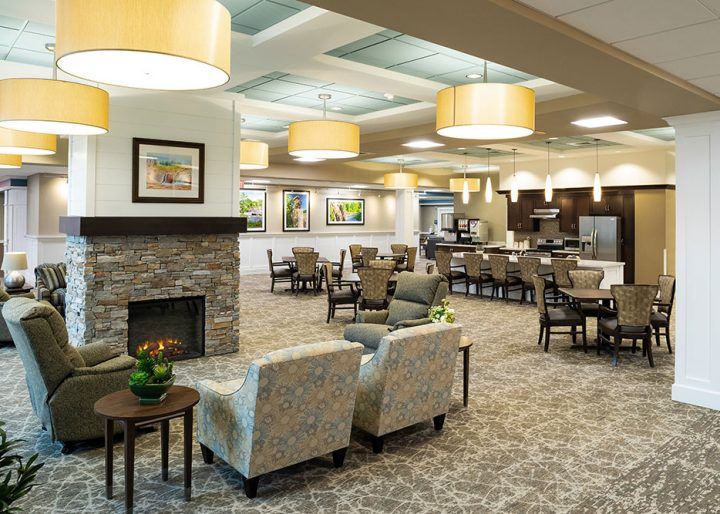Trusted Memory Care facilities providing constant support and security.
Trusted Memory Care facilities providing constant support and security.
Blog Article
The Role of Assisted Staying In Giving Specialized Look After Dementia Clients
The arrangement of specialized care for mental deterioration patients within assisted living centers is progressively identified as a vital element of effective dementia management. These environments are created to deal with the one-of-a-kind cognitive and psychological difficulties encountered by individuals with mental deterioration, using customized support that promotes safety and security and health.
Understanding Mental Deterioration Care Needs
Understanding the treatment demands of individuals with mental deterioration is vital for giving effective support and improving their lifestyle. Dementia is a dynamic neurological problem that influences cognitive features such as memory, thinking, and communication. As a result, people with dementia commonly require assistance with everyday tasks, customized care plans, and emotional support.
Efficient dementia care includes acknowledging the distinct difficulties encountered by each individual. This consists of understanding the stages of mental deterioration, which can range from mild cognitive problems to sophisticated phases calling for extensive help. Treatment needs might encompass support in handling everyday regimens, drug adherence, and keeping social communications to stop seclusion.
Additionally, sensory stimulation and acquainted environments can considerably boost the well-being of individuals with dementia. Caregivers should be trained to determine behavioral changes and employ methods customized to every person's preferences and previous experiences. Strategies such as recognition treatment and reminiscence can assist communicate efficiently and foster a sense of safety and security.
Eventually, successfully dealing with the care demands of people with mental deterioration needs a compassionate approach, recurring training for caretakers, and a dedication to preserving dignity and regard throughout the caregiving procedure.
Benefits of Assisted Living

Another considerable benefit is the secure and protected setting these facilities offer. Residents gain from attributes such as secured entryways and monitored common locations, lowering the risk of roaming and improving total safety. Moreover, assisted living advertises social communication among locals, promoting a feeling of area and belonging. Involving with peers can minimize sensations of seclusion, which prevail in those coping with dementia.
In addition, lots of nursing home provide help with everyday tasks, such as medicine management, bathing, and meal preparation. This support allows residents to preserve their self-reliance while ensuring their health and wellness and wellness are prioritized. Eventually, assisted living functions as a useful resource, balancing treatment and freedom for people with dementia and their families.

Specialized Programs and Tasks
(Charlotte Alzheimer's Care)Recognizing the unique needs of individuals with mental deterioration, many assisted living centers carry out specific programs and activities designed to boost cognitive feature and advertise general wellness. These programs commonly include cognitive stimulation tasks that involve citizens in memory games, puzzles, and memory treatment, which motivates the sharing of personal tales and previous experiences.
Additionally, art and songs therapy play substantial roles in cultivating imagination and psychological expression (Assisted Living). Involving locals in paint, crafting, or music sessions can give restorative advantages, assisting to reduce stress and anxiety and improve state of mind. Exercises, such as mild exercises and dance sessions, are additionally important, as they advertise wheelchair and physical wellness while motivating social communication among citizens
Structured everyday regimens are frequently developed to give a sense of security and predictability for people with dementia. These routines can consist of scheduled meal times, team tasks, and personalized treatment strategies that accommodate private passions and abilities. By producing an improving setting filled with customized tasks, assisted living facilities not just boost the lifestyle for dementia individuals yet also promote a feeling of area and belonging.
Trained Personnel and Assistance
(Dementia Care Charlotte)In helped living centers, the existence of trained personnel is essential for giving effective assistance to people with dementia. These specialists possess specialized understanding and abilities to deal with the one-of-a-kind requirements of homeowners, ensuring their safety and security, comfort, and health. Staff participants obtain training in dementia treatment, which consists of comprehending the development of the condition, recognizing behavior adjustments, and employing efficient interaction techniques.
In addition, trained personnel are outfitted to carry out customized treatment strategies tailored per resident's preferences and capabilities. This personalized strategy fosters a sense of autonomy and dignity, allowing residents to take part in significant activities that improve their high quality of life. The personnel likewise play a crucial duty in checking health and wellness, without delay recognizing any kind of adjustments in problem that may need clinical interest.
Along with route care, qualified team give psychological assistance to homeowners, assisting to relieve sensations of confusion and stress and anxiety that frequently come with dementia. Their thoughtful approach develops a caring environment where locals visit our website feel valued and comprehended - Assisted Living. Ultimately, the competence and commitment of trained staff are indispensable in supplying detailed care that meets the intricate requirements of individuals living with mental deterioration in assisted living settings
Family Participation and Resources
Household involvement plays a substantial function in the care of people with dementia in nursing home. Involving member of the family in the care procedure not only boosts the psychological well-being of the homeowner however additionally promotes a collaborative setting where care strategies can be tailored to specific requirements. Families can give useful insights right into the preferences, background, and behaviors of their enjoyed ones, which can notify caretakers and cause more personalized treatment methods.
In addition, assisted living centers often use resources for households, such as support system and instructional workshops. These resources can assist family members understand mental deterioration, improve communication approaches, and develop coping devices. Participation in these programs can equip member of the family, furnishing them with the devices necessary to support their liked ones properly.
Furthermore, routine interaction between households and personnel is critical. This ongoing dialogue permits family members to stay notified concerning their enjoyed one's progression and any changes in care plans. Eventually, a solid collaboration in between households and helped living centers promotes a setting of trust fund and understanding, ensuring that individuals with mental deterioration obtain the specialized treatment they should have while maintaining their family connections.
Final Thought
In conclusion, aided living centers play an important role in resolving the special needs of mental deterioration people with personalized treatment and support. Inevitably, assisted living supplies important sources that substantially improve the quality of life for those living with dementia.
Report this page